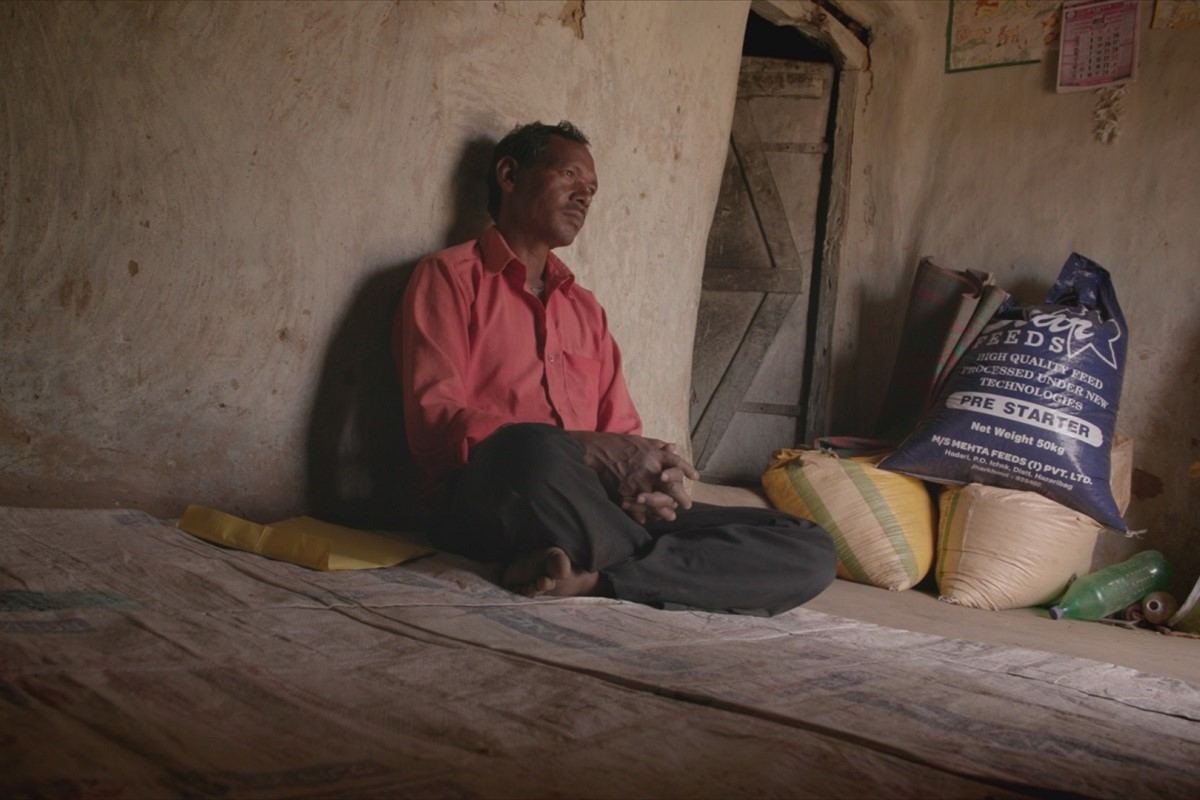
Ranjit, seen at home in his village, Bero, in Jharkhand, pursues justice for his daughter’s rapists in the documentary “To Kill a Tiger.”
12:07 JST, November 8, 2023
There are no actual tigers in “To Kill a Tiger,” but there are plenty of predators. This powerful Canadian documentary follows a child-rape case in India, a country where – according to a broadcast reporter glimpsed in the film – “a woman is raped every 20 minutes.”
That statistic is somewhat conjectural, since the vast majority of rapes in India are apparently not reported. But laws passed about a decade ago increased protections for rape victims and added obligations for local officials, which has led to more charges and more prosecutions.
One of the laws is expressly concerned with juvenile victims like the one the film focuses on. Raped by three men after a 2017 wedding party, when she was 13, Kiran (as the film dubs her, pseudonymously) pursued justice with the support of her father, Ranjit. This attracted the attention of the Srijan Foundation, an activist group whose members rarely encounter men who are willing to stand publicly with female relatives who have been sexually assaulted. (Kiran’s mother also appears in the film, but her support for her daughter is treated as less remarkable or less important.)
Indian-born Canadian writer-director Nisha Pahuja followed the case during the 14 months it took to reach a verdict. She and her crew weren’t allowed in the courtroom, but they captured some astonishing interviews with attorneys, government functionaries – as haughty as they are inept – and residents of the northeast Indian farming village where Kiran and her family live.
The neighbors are, to say the least, unsympathetic. Both male and female villagers insist that the family drop the charges against the three young men, one of whom is the girl’s cousin. They threaten Ranjit with death and the burning of his family home. At one point, they demand that the filmmakers leave town. (The ferocity of this moment is not fully conveyed, since Pahuja shut off the crew’s equipment to calm the situation.)
The villagers also repeatedly suggest what they say is the only possible outcome that will restore Kiran’s “honor”: that she marry one of her attackers. “We have to kill this way of thinking,” says one of the activists who arrive to support Kiran and Ranjit.
As is common in rape cases worldwide, apologists advance all sorts of theories as to why the victim is actually to blame. This attitude isn’t restricted to the family’s neighbors. It’s shared by the alleged attackers’ defense attorney, who’s a woman.
Pahuja originally planned to obscure Kiran’s face in the documentary, perhaps by blurring the image – as is done with the three accused men – or digitally superimposing an actress’s face. But the young woman, having reached 18, agreed to share her identity after watching the footage. That’s a significant boon for the movie, since Kiran is articulate and remarkably steadfast. (Her father is, at least sometimes, wobblier.) The filmmakers couldn’t record Kiran’s crucial courtroom testimony, but they did get her rehearsal of her statement, which is cogent, moving and an effective climax to the real-life drama.
“To Kill a Tiger” isn’t a stylish or particularly shapely documentary, and it occasionally drags. Probably in an attempt to convey the frustrating duration of the 14-month process, Pahuja sometimes inserts sequences of village life that are all too everyday. These could have been gently trimmed without losing the sense of simultaneous tension and tedium.
In a way, though, it’s fitting that the movie looks rather ordinary. What happened to Kiran, although horrific, is commonplace. What’s extraordinary about “To Kill a Tiger” is Kiran and Ranjit’s determination, and the possible changes for good that may result from it.
Top Articles in News Services
-

Survey Shows False Election Info Perceived as True
-

Hong Kong Ex-Publisher Jimmy Lai’s Sentence Raises International Outcry as China Defends It
-

Japan’s Nikkei Stock Average Touches 58,000 as Yen, Jgbs Rally on Election Fallout (UPDATE 1)
-

Japan’s Nikkei Stock Average Falls as US-Iran Tensions Unsettle Investors (UPDATE 1)
-

Trump Names Former Federal Reserve Governor Warsh as the Next Fed Chair, Replacing Powell
JN ACCESS RANKING
-

Producer Behind Pop Group XG Arrested for Cocaine Possession
-

Japan PM Takaichi’s Cabinet Resigns en Masse
-

Man Infected with Measles Reportedly Dined at Restaurant in Tokyo Station
-

Israeli Ambassador to Japan Speaks about Japan’s Role in the Reconstruction of Gaza
-

Videos Plagiarized, Reposted with False Subtitles Claiming ‘Ryukyu Belongs to China’; Anti-China False Information Also Posted in Japan

























